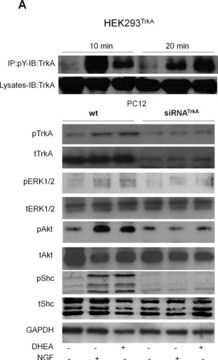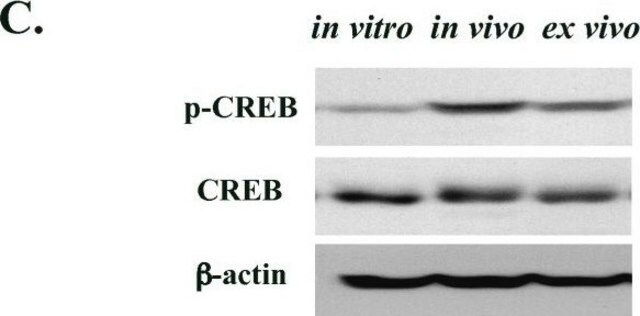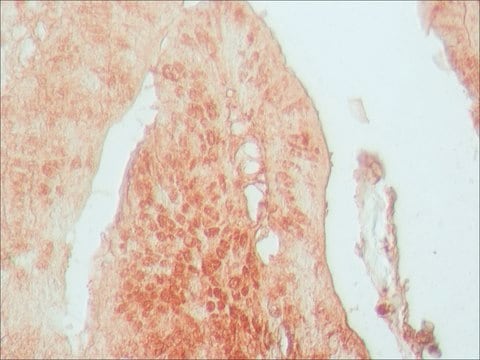06-923
Anti-Cdk1/Cdc2 (PSTAIR) Antibody
Upstate®, from rabbit
Synonym(s):
Anti-CDC2
About This Item
Recommended Products
biological source
rabbit
Quality Level
antibody form
affinity isolated antibody
antibody product type
primary antibodies
clone
polyclonal
species reactivity
human, rat, amphibian, mouse
species reactivity (predicted by homology)
chicken, canine, starfish, monkey, frog, Drosophila, sheep
manufacturer/tradename
Upstate®
technique(s)
immunocytochemistry: suitable
immunoprecipitation (IP): suitable
western blot: suitable
isotype
IgG
NCBI accession no.
UniProt accession no.
shipped in
wet ice
target post-translational modification
unmodified
Gene Information
chicken ... Cdk1(396252)
dog ... Cdk1(100856079)
frog ... Cdk1(394503)
fruit fly ... Cdk1(34411)
human ... CDK1(983)
mouse ... Cdk1(12534)
rat ... Cdk1(54237)
General description
Specificity
Immunogen
Application
A previous lot of this antibody was used in the confocal Immunofluorescent microscopy of A431 cells. Cells were grown, washed, fixed with formaldahyde, and permeabilized with NP40. The cells were triple stained with with Anti-Cdk1/Cdc2 (Red, Cy3), Phalloidin (Actin, Green, AlexaFluor488), and DAPI (Blue, Nucleus). Positive nuclear staining.
Immunoprecipitation: 4 µg of a previous lot immunoprecipitated cdc2 from 500 µg of A431 RIPA lysate.
Quality
Western Blot Analysis: 0.5-2 µg/mL of this antibody detected cdc2 from human A431, mouse 3T3 or rat L6 RIPA cell lysates.
Target description
Physical form
Analysis Note
Positive Antigen Control: Catalog #12-301, non-stimulated A431 cell lysate. Add 2.5µL of 2-mercaptoethanol/100µL of lysate and boil for 5 minutes to reduce the preparation. Load 20µg of reduced lysate per lane for mingels.
Legal Information
Not finding the right product?
Try our Product Selector Tool.
recommended
Storage Class Code
12 - Non Combustible Liquids
WGK
WGK 1
Flash Point(F)
Not applicable
Flash Point(C)
Not applicable
Certificates of Analysis (COA)
Search for Certificates of Analysis (COA) by entering the products Lot/Batch Number. Lot and Batch Numbers can be found on a product’s label following the words ‘Lot’ or ‘Batch’.
Already Own This Product?
Find documentation for the products that you have recently purchased in the Document Library.
Our team of scientists has experience in all areas of research including Life Science, Material Science, Chemical Synthesis, Chromatography, Analytical and many others.
Contact Technical Service








